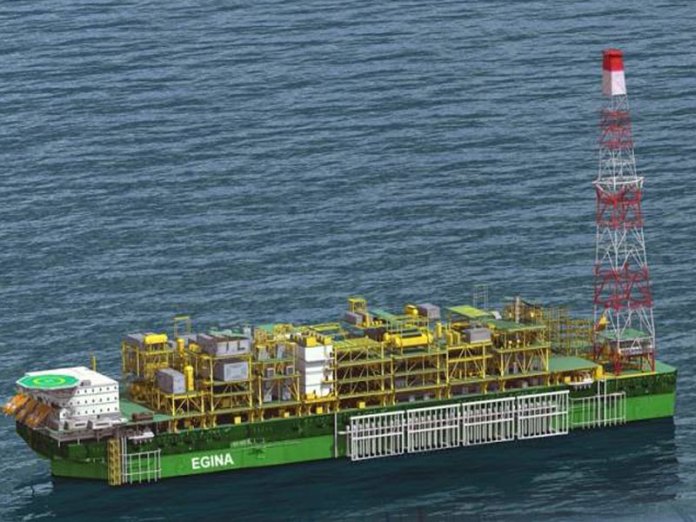- Nigerdock Graduates 49 Trainees on 200,000 bpd Egina Deepwater Project
The Executive Secretary of the Nigerian Content Development and Monitoring Board (NCDMB), Mr. Simbi Wabote has applauded Nigerdock for its efforts in promoting local content and human capacity development, especially with the graduation of the second batch of 49 vocational trainees on the 200,000 barrels per day Egina deepwater project from the Nigerdock Training and Development Academy.
The National Human Capacity Development (NHCD) plan for the training on the Floating Production Storage Offloading (FPSO) vessel for the Egina oilfield was designed as an on-the-job training model.
As such, the trainees witnessed the fabrication of various structures on Egina FPSO project and provided support during the project.
Located at the Oil Mining Lease (OML) 130 offshore, the Egina deepwater field is being developed by the French oil major, Total Upstream Nigeria Limited (TUPNI) to add 200,000 barrels per day of crude oil to Nigeria’s oil production by 2018.
Total had awarded the contract for building the Egina FPSO to Samsung Heavy Industries (SHI) of Korea at a cost of $3.3 billion.
However, some of the trainees witnessed activities in other areas of Nigerdock’s operations like the shipyard division and offshore logistics division.
The vocational trainees comprising 47 young men and two ladies commenced their on-the-job training (OJT) in May 2016.
While 24 trainees acquired skills in welding; 19 of them were trained in fitting and six in machining.
At the graduation ceremony held weekend at the Nigerdock facility located at Snake Island Integrated Free Zone (SIIFZ), Wabote, who was represented by NCDMB’s Manager in charge of Capacity Development Division, Mr. Iwhiwhu Maurice Kelly, appreciated Nigerdock, Samsung Heavy Industries and Total for further deepening local content and improving Nigeria’s Human Capacity Development through its world class training academy.
“We commend Nigerdock, Samsung Heavy Industries Ltd and Total Upstream Nigeria Limited because we are confident that these vocational trainees have been trained in various skill sets that empower them to provide the necessary manpower and services for the sector and they can compete with their counterparts in other parts of the world,” Wabote said.
In her remarks, the Group Corporate Affairs Director of Jagal, Mrs. Joy Okebalama, reaffirmed Nigerdock’s commitment to continuously champion local content development in Nigeria. She also lauded SHI Nigeria Limited, Total and NCDMB for supporting the programme.
Also speaking at the ceremony, which was also witnessed by the Group Managing Director of Jagal Energy, Mr. Chris Bennett, Nigerdock’s Human Capacity Development Manager, Mr. Emeka Anazia noted that none of the trainees would leave the Academy with any injury as the training was successfully completed without any lost time injury.
“I am glad that in 15 months, we delivered more than we promised,” he added.
On his part, the Project Manager for Egina Project, Mr. Adebola Adesoye stated that four million man-hours without lost time injury (LTI) were spent on the fabrication scope, with the last batches loaded out in June this year.
According to him, 250,000 man-hours was delivered on the training scope, adding that the professional trainees had earlier graduated in April this year.
In his speech, SHI’s Nigerian Content Manager, Mr. Imo Kalu Imo noted that the ceremony was the graduation of the second batch of the training of 100 Nigerians under the national human capacity development initiative on the FPSO for Egina field development by Total.
“Samsung has keyed into the NCDMB’s initiative of developing human capacity by training Nigerians such as these,” he added.


 Billionaire Watch2 weeks ago
Billionaire Watch2 weeks ago
 Startups4 weeks ago
Startups4 weeks ago
 News4 weeks ago
News4 weeks ago
 News4 weeks ago
News4 weeks ago
 Bitcoin4 weeks ago
Bitcoin4 weeks ago
 Naira4 weeks ago
Naira4 weeks ago
 Forex3 weeks ago
Forex3 weeks ago
 Treasury Bills4 weeks ago
Treasury Bills4 weeks ago
























